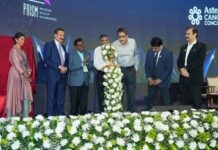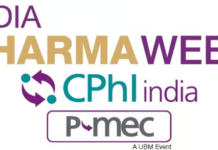- Survey finds while sleep disorder awareness is rising, good sleep is still not a priority for Indians
- Indians report technology as a major sleep distractor; prioritise exercise over sleep
New Delhi, March 16, 2018: On the occasion of World Sleep Day, Philips India Ltd, a leading health technology company, released findings from a global Philips survey which highlighted the need for better sleep for better health. The findings of the survey will provide directions to raise awareness and innovate interventions to ensure an important but oft-neglected aspect of health and wellbeing: sleep health.
Philips global survey “Better Sleep, Better Health: A Global Look at Why We’re Still Falling Short on Sleep”
While sleeping well is essential for good health, more than 100 million people suffer from sleep apnea globally. More than 80 percent of these people remain un diagnosed and 30 percent find it difficult to initiate and maintain sleep. The findings of Philips annual global survey conducted with over 15,000 adults across 13 countries (United States, the UK, Germany, Poland, France, India, China, Australia, Colombia, Argentina, Mexico, Brazil and Japan) threw up some interesting findings:
- Sleep isn’t a priority yet: While 67 percent of the respondents realised the need to sleep well, the guilt for not exercising regularly (49 percent) or not eating healthy (42 percent) overrode the guilt for not maintaining good sleep habits (29 percent). In India 66 percent feel exercise is the top factor impacting health and well-being more than sleep
- Barriers to good sleep: 61 percent of the respondents reported medical issues impacting sleep. Of them, insomnia afflicted 26 percent and snoring kept awake 21 percent of the respondents. Worrying (58 percent) and technology distractions (26 percent) were the other major impediments to good sleep. In India, 19 percent of the adults reported overlapping of work hours with normal sleep time (shift work sleep disorder) as a key barrier to sleep. Another 32 percent of the adults from India reported technology as a major sleep distractor.
- Impact of bad sleep: After a bad night’s sleep, the impact on global adults included tiredness (46 percent), irritable behaviour (41 percent), lack of motivation (39 percent) and lack of concentration (39 percent)
- Efforts to get good sleep: Globally 77 percent adults have tried to improve their sleep. Popular interventions include soothing music (36 percent) and institution of a set bedtime/wake-up schedule (32 percent) among others. Interestingly among Indian respondents, 45 percent adults have tried mediation while 24 percent adults have tried specialized bedding to initiate and maintain good sleep.
- Millennials think differently about sleep: Millennials, adults in the age group of 18-24, think differently. They are less likely to have a set bedtime (38 percent as against 47 percent for those aged 25+) yet reported getting more sleep each night (ages 18-24 get an average of 7.2 hours, compared to 6.9 hours among those ages 25+). They are also more likely to feel guilty about not maintain good sleep habits (35 percent as against 26 percent for those aged 35+). They are also more likely to have taken steps to improve their sleep (86 percent as against 75 percent for those aged 25+)
“Sleep disorder is a much more serious issue than what most people understand, especially given their direct correlation with other serious conditions like cardiovascular disease, diabetes, stroke etc. In a country where snoring is traditionally associated with sound sleep, it is extremely challenging to make people aware that it is a sign of a serious sleep disorder. With Philips driving awareness on sleep disorders, people have now started realising its importance in improving their health. We have been able to increase awareness significantly over the past few years, but there is still a long way to go, said Mr. Harish R, Head of Sleep & Respiratory Care at Philips.
Dr Sanjay Manchanda, Honorary Consultant. Chairperson Sleep Medicine Sir Ganga Ram Hospital, New Delhi says, “Sleep is not just a time out of daily activity but it is an essential and active phase of life. Although people are becoming more educated and aware about the issues that can rise due to sleep disorders, there is a majority of the population that is still negligent. Some sleep disorders such as sleep apnea are silent killers and are usually associated with one or more co-morbidities like heart disease, diabetes, hypertension to mention a few. Majority of sleep problems are perfectly treatable and in many cases there is a dramatic change in the quality of life in the treated person.”
Philips India continues educating people on the symptoms of Obstructive Sleep Apnea (OSA) like unwarranted daytime sleepiness and trouble in concentrating which can have an impact on productivity, lead to accidents and lower the overall quality of life. Through its awareness initiatives and studies, Philips has emphasized that lack of sleep not only impacts the overall quality and productivity of a person’s life but also leads to serious health issues such as increased risk of diabetes, weight gain, high blood pressure and irregular heartbeats among others.
With sleep considered as one of the pillars of overall health and wellbeing along with proper nutrition, Philips India is committed to developing patient-centric innovation that provides people with overall better health and wellness. For the millions of people worldwide who suffer from chronic conditions, Philips solutions can enable a level of freedom and independence by delivering intuitive, simple-to-use solutions in the place where people want and need it to be – their home.
For further information, please contact:
Avian Media
Saumya Bhushan | 9910353007 | saumya@avian-media.com
Philips India Corporate Communications
Geetika Bangia | 9818102133 | geetika.bangia@philips.com
Corporate Comm India(CCI Newswire)






















